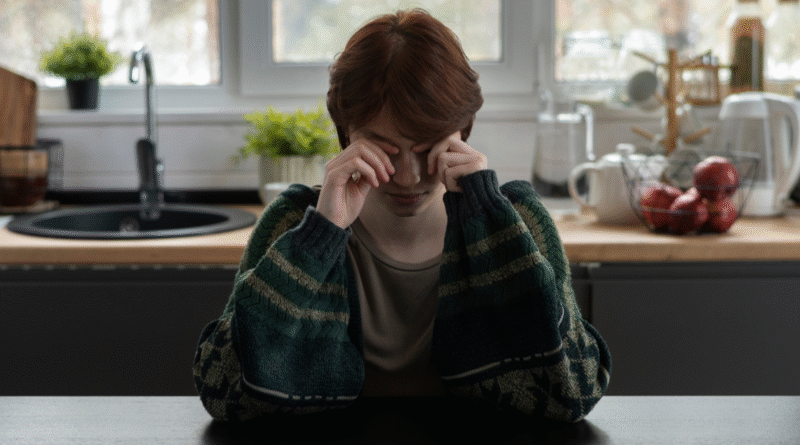Loneliness: Understanding Roots and Healing Impact
Loneliness is not simply about being by oneself—it is a deep emotional state defined by a disconnect between the relationships one desires and those they experience. In a fast-paced, digitally connected world like ours, this emotional disconnection is becoming increasingly common. A complex issue that affects mental health, emotional stability, and physical well-being, loneliness is more than just emotional distress.
What Triggers Loneliness?
- Limited Social Contact
Modern lifestyle changes, such as shifting to remote work, urban migration, or living independently, reduce our natural daily social interactions. These changes, while often associated with progress or personal development, can leave individuals feeling disconnected and emotionally isolated. - Significant Life Events
Major transitions like retirement, divorce, bereavement, or relocating to a new place often disrupt established emotional connections. If individuals lack robust support systems during these periods, it can lead to feelings of abandonment or emotional detachment.
- Mental and Emotional Challenges
People experiencing mental health conditions such as anxiety, depression, low self-esteem, or social anxiety often isolate themselves to avoid perceived judgment or discomfort. Unfortunately, this withdrawal creates a vicious cycle that amplifies loneliness even further. - Absence of Deep Emotional Bonds
Having a broad social circle does not always equate to emotional closeness. In relationships that lack genuine understanding, empathy, and vulnerability, individuals can feel deeply alone even while surrounded by others.
- Over-Reliance on Digital Interaction
While technology has made communication easier, it often sacrifices the depth and quality of human connection. Social media engagement can feel superficial, and constant virtual communication may not satisfy the emotional needs that in-person connections fulfil.
Effects of Loneliness
Mental and Emotional Well-being
- Cognitive Decline: Prolonged loneliness is associated with a decline in cognitive abilities and an increased risk of memory-related disorders, including Alzheimer’s disease.
- Emotional Distress: Persistent loneliness may lead to chronic sadness, anxiety, and feelings of worthlessness.
Physical Health Implications
- Heightened Stress Levels: Loneliness activates the body’s stress response, increasing cortisol levels and contributing to long-term inflammation.
- Compromised Immune Function: Socially isolated individuals often exhibit weaker immune systems, making them more vulnerable to illnesses.
- Cardiovascular Risks: Heart disease, high blood pressure, and an increased risk of strokes have all been associated with loneliness.
Unhealthy Behaviour Patterns
- Sleep Disruptions: It’s common for lonely people to have problems getting to sleep or remaining asleep.
- Risky Coping Mechanisms: Many turn to overeating, substance use, or unhealthy habits to numb emotional pain.
- Avoidance of Social Activities: Ironically, loneliness can drive individuals to withdraw further, reinforcing their isolation.
Moving Toward Healing
Re-establish Social Connections
- Reach Out to Loved Ones: A quick message or phone contact can strengthen ties and offer consolation.
- Join Community Activities: Engaging in local events, classes, or volunteering helps forge new relationships.
Prioritise Self-Care
- Physical Activity: Regular movement enhances mood and energy levels.
- Mindfulness Practices: Meditation, journaling, and breathing exercises improve emotional regulation.
- Pursue Personal Interests: Creative outlets like art, gardening, or music foster fulfilment and purpose.
Cultivate Meaningful Bonds
Focus on developing relationships with people who provide emotional depth, authenticity, and mutual understanding. Quality, not quantity, creates a meaningful connection.
Professional Support is Key
Therapy helps individuals identify underlying emotional patterns, rebuild self-confidence, and learn healthier ways to form and sustain relationships.
The Role of Therapy in Healing from Loneliness
For people who struggle with persistent loneliness, professional counselling is essential. Online counselling offers a convenient and accessible path to self-discovery, emotional clarity, and the building of healthy, lasting connections.
How Therapy Helps
- Safe and Confidential Environment: Clients are given a nonjudgmental setting in which to discuss difficulties and express emotions.
- Cognitive Behavioural Techniques: CBT helps reframe negative thought patterns and cultivates a more positive self-image.
- Emotional Skill-Building: Therapy enhances communication, self-awareness, and social confidence—skills critical to fostering relationships.
Psychowellness Center: A Haven for Mental Health
The Psychowellness Center stands as a beacon of hope for individuals experiencing emotional distress, including loneliness. As a leading Mental Health Wellness Clinic in Delhi, Janakpuri, it operates under the guidance of renowned clinical psychologist Dr. R.K. Suri, offering a holistic and inclusive approach to mental health.
What Sets Psychowellness Center Apart?
- Integrated Healing Approach
The center addresses psychological, emotional, and behavioural aspects to ensure complete and lasting healing. - Evidence-Based Therapies
Services include Cognitive Behavioural Therapy (CBT), mindfulness-based therapy, interpersonal therapy, and more. - Expert, Multidisciplinary Team
A team of experienced counsellors and clinical psychologists works together to tailor treatment plans for every client. - Client-Centric Care
Treatment plans are designed around individual needs, ensuring a personalised and empowering healing experience. - Accessibility
With both online and offline therapy sessions, the center ensures mental health support is available across geographical and logistical barriers. - Community Engagement
Through awareness campaigns, group therapy, and wellness programs, the center helps reduce stigma and normalise seeking help.
Rebuilding Connection is Possible
Loneliness may stem from life transitions, emotional struggles, or a lack of deep connections, but it is not a life sentence. With deliberate efforts, supportive relationships, and professional help from loneliness counselling, individuals can overcome this emotional pain.
Therapeutic support from trusted institutions like the Psychowellness Center can serve as a crucial turning point in the journey toward emotional wellness and self-empowerment. If you or someone you know is experiencing loneliness, remember that healing begins with reaching out.
References
- Cacioppo, J. T., & Patrick, W. (2008). Loneliness: Human nature and the need for social connection. W. W. Norton & Company.
- Hawkley, L. C., & Cacioppo, J. T. (2010). Loneliness matters: A theoretical and empirical review of consequences and mechanisms. Annals of Behavioural Medicine, 40(2), 218–227.
- Holt-Lunstad, J., Smith, T. B., Baker, M., Harris, T., & Stephenson, D. (2015). Loneliness and social isolation as risk factors for mortality: A meta-analytic review. Perspectives on Psychological Science, 10(2), 227–237.
- Mushtaq, R., Shoib, S., Shah, T., & Mushtaq, S. (2014). Relationship between loneliness, psychiatric disorders, and physical health: A review on the psychological aspects of loneliness. Journal of Clinical and Diagnostic Research, 8(9), WE01–WE04.
- Qualter, P., Vanhalst, J., Harris, R., Van Roekel, E., Lodder, G., Bangee, M., Maes, M., & Verhagen, M. (2015). Loneliness across the life span. Perspectives on Psychological Science, 10(2), 250–264.




